Six faculty members were named Meigs Distinguished Teaching Professors. The professorship is the university’s highest recognition for instruction at the undergraduate and graduate levels. Meigs Professors receive a permanent salary increase of $6,000 and a one-year discretionary fund of $1,000.
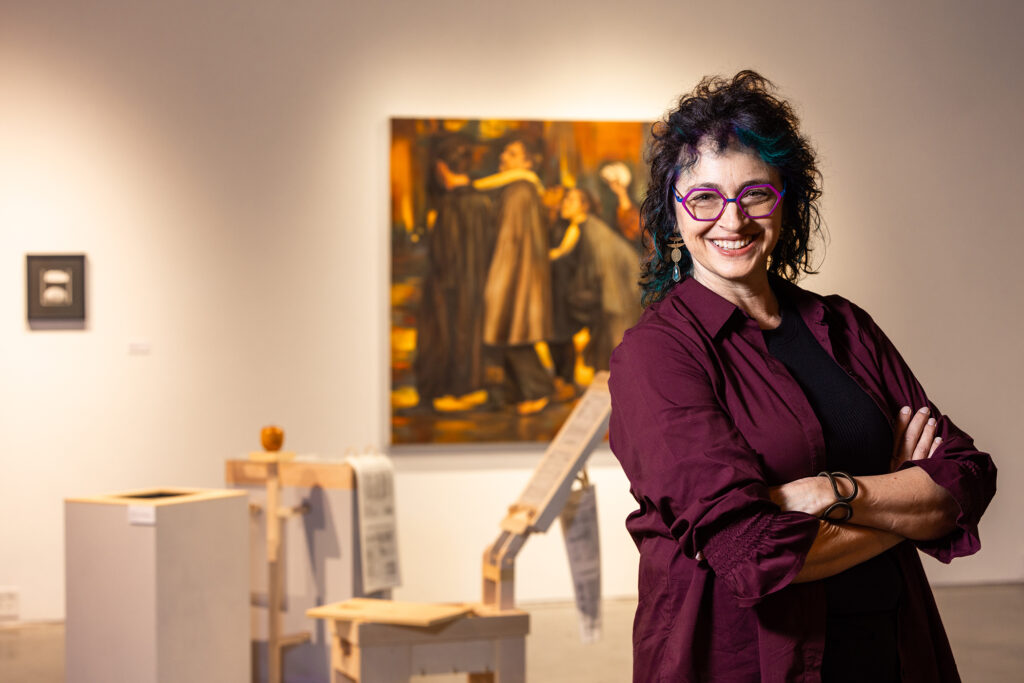
Melisa Cahnmann-Taylor
Professor
Department of Language and Literacy Education
Mary Frances Early College of Education
Melisa Cahnmann-Taylor began by exploring the possibilities of poetry and theatre in language education.
Now, her research and scholarship have expanded to encompass and create multiple ways that educators can use the visual, performing and literary arts not only to improve educational practices but also to study, understand and change learners, teachers and communities.
Cahnmann-Taylor uses several forms of technology in her teaching, including YouTube instructional videos to “meet” students each term in high-quality recorded lectures. She also has students engage in performances, exhibits and readings of their work.
“She gave incredibly fast and thorough feedback, for which I am extremely grateful. I have never seen such thorough or timely feedback from a university professor,” one former student wrote.
In addition to serving as LLED faculty, Cahnmann-Taylor also serves as affiliate faculty in art education in the Lamar Dodd School of Art, in Latin American and Caribbean Studies, and on the advisory board for the UGA Arts Collaborative.
Cahnmann-Taylor is a member of the UGA Teaching Academy and has also received the Center for Teaching and Learning Fellow Award, First-Year Odyssey Teaching Award and the UGA College of Education Research Sabbatical Award to author books on instruction.
Cahnmann-Taylor has authored or co-authored numerous books, book chapters and journal articles, including the forthcoming “The Creative Ethnographer’s Notebook.” She is currently on a translation team to bring the poems of China’s Labor Poet Laureate, Nianxi Chen, into the English language.
“Dr. Cahnmann-Taylor exhibits teaching excellence at the University of Georgia and around the world,” one colleague wrote.
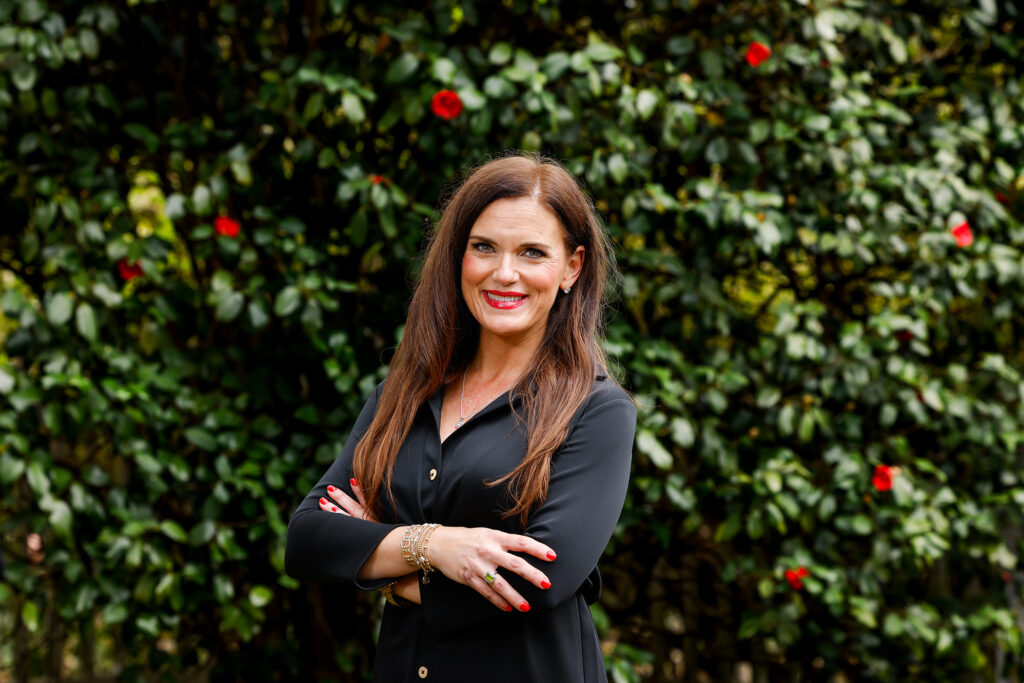
Tina Carpenter
EY Faculty Fellow and Professor
Instructional Innovation Fellow
J.M. Tull School of Accounting
Terry College of Business
Tina Carpenter sparks students’ intellectual curiosity and challenges them to enhance their critical thinking skills, explore innovative solutions to problems and think outside of the box.
“Dr. Carpenter expresses genuine care towards those around her and has a never-ending desire to better herself and her teaching,” one former student wrote.
Carpenter seeks to create an engaging and transformative learning environment for her students, finding unique ways to help them learn. For example, one assignment in her forensic accounting class asked students to find and present examples of fraud in the news to the class.
In 2022, Carpenter participated in the Active Learning Summer Institute, redesigning one of her courses with a fraud simulation case that she created with a UGA Learning Technologies Grant. Within this new simulation, students independently navigate the investigation by conducting live interviews with avatars, collecting evidence, analyzing data and building data analytics as they interface with the Artificial Intelligence technology platform. As a result, she was asked to join the UGA Faculty Advisory Board and the UGA Active Learning Advisory Committee.
Carpenter has been inducted into the UGA Teaching Academy, chosen as a Senior Teaching Fellow, honored as a UGA Fontaine Mentor, awarded a UGA Creative Teaching Award and selected as the inaugural Terry Instructional Innovation Fellow. Additionally, Carpenter was named a Lilly Teaching Fellow in 2005 and has twice served as a Lilly mentor.
“When I think of a faculty member who goes beyond the call of duty to educate, innovate, engage students inside and outside the classroom, inspire and encourage our students, Dr. Carpenter is top of mind,” one colleague wrote.
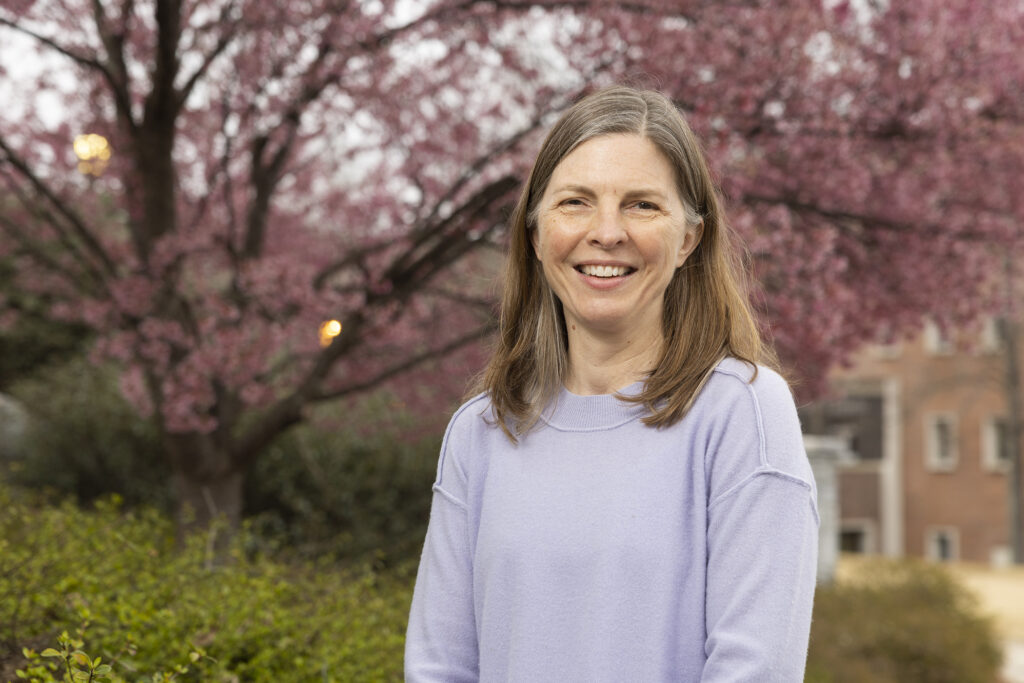
Erin Dolan
Georgia Athletic Association
Professor of Innovative Science Education
Department of Biochemistry and Molecular Biology
Franklin College of Arts and Sciences
Erin Dolan prioritizes students learning science by thinking scientifically, making scientific careers attainable via research mentoring and scaling access to research opportunities via course-based research.
Dolan sits on the university’s Active Learning Advisory Committee and incorporates those techniques in her own teaching. She designs learning tasks for students to practice scientific thinking and gives them continuous feedback to help them improve. She uses case studies and problem-based learning so that students learn to work through real scientific issues and see the relevance of what they are learning to life outside of the classroom.
Dolan incorporates a distinct form of experiential learning—Course-based Undergraduate Research Experiences (CUREs). CUREs are designed to engage all students enrolled in a course in making authentic discoveries that matter outside of the classroom.
“Not only was she very well informed on the material taught, but she also made sure everyone understood what was going on and created a passion for biochemistry,” one former student wrote.
Dolan has mentored 82 undergraduates, supervised five doctoral students and trained 13 post-doctoral fellows. In her time at UGA, she’s authored or co-authored numerous publications. She has also received several grants, including some with the National Institutes of Health and the National Science Foundation.
“Over the years, Dr. Dolan has powerfully combined her experiences as a former research scientist, an active teacher and mentor, and a researcher of education and mentoring practices to become a thought leader who is sought out not just on campus but throughout the country,” one colleague wrote.
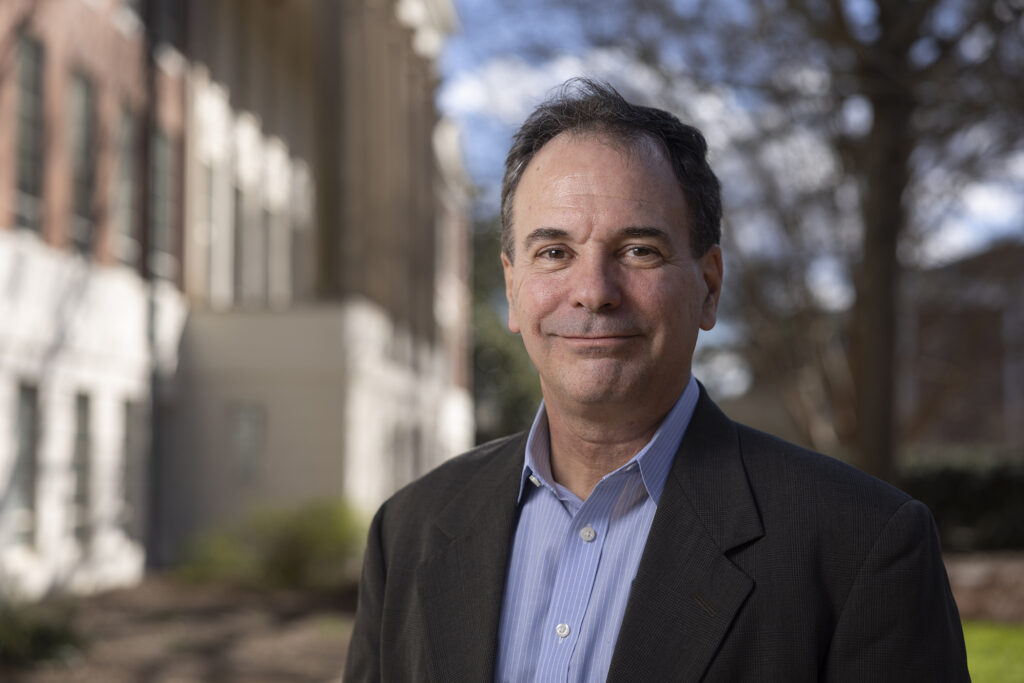
Keith Dougherty
Professor
Department of Political Science
School of Public and International Affairs
Keith Dougherty strives to continually motivate students, inspire them to work collectively, and get them excited about class.
As an example, he allows students to work together on homeworks that he then reinforces by working through problems in class. He intentionally pairs students with a good understanding of the material with those who find it challenging.
Dougherty also uses active learning techniques. He begins his Game Theory course with “Twenty-One Flags.” He puts students into small groups and asks them to work out a good strategy for removing flags. The group that removes the last flag wins. This activity helps them understand why some players might play rationally and can then lead to a discussion of why others don’t.
“In every facet of his classes, Dr. Dougherty’s passion for educating and kindness toward students takes center stage,” one former student wrote.
A member of the UGA Teaching Academy, Dougherty also has received the Creative Teaching Award and the Lothar Tresp Outstanding Honors Professor Award and served as a Senior Teaching Fellow.
“Professor Dougherty is more than a great classroom teacher. He is a dynamic presence who has introduced undergraduates to the thrill of intellectual curiosity and critical thinking outside of the classroom in many ways,” one colleague wrote.
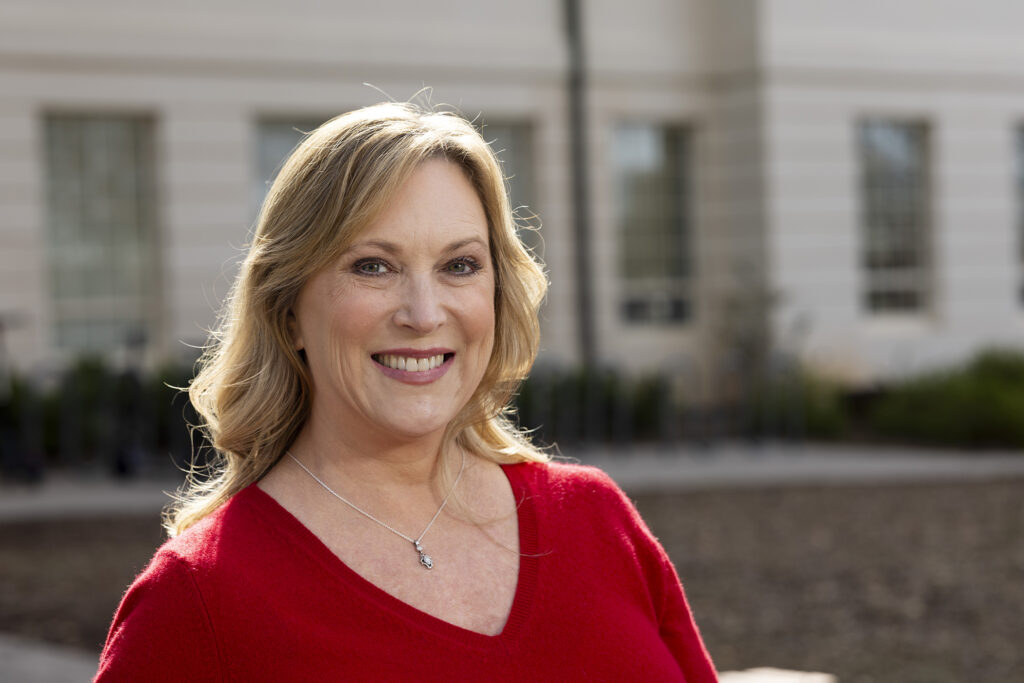
Leslie Gordon Simons
Professor
Department of Sociology
Franklin College of Arts and Sciences
Leslie Gordon Simons takes a dynamic approach to teaching.
Her goal is to guide her students through the learning process. In fact, she encourages her students to focus less on grades and more on learning.
To do that, Simons seeks out innovative teaching strategies. She has participated in the Active Learning Summer Institute and looks for ways to increase student engagement and agency as well as their willingness to take risks. She makes frequent use of strategies like think-pair-share, peer teaching and minute papers. Simons is currently testing a gamified simulation in her Science of Happiness class, through which students will learn about building happier lives and communities.
“For Dr. Simons, teaching is a calling,” one former student wrote.
Simons is a member of the UGA Teaching Academy, has been selected as a Senior Teaching Fellow and Online Teaching Fellow and received the Sandy Beaver Professorship from Franklin College. In 2019, she received the FYO Teaching Excellence Award, and in 2024 she received the Creative Teaching Award from UGA’s Office of Instruction.
She has co-authored a textbook and over 100 peer-reviewed articles and chapters. She has served as major professor for 9 doctoral students and 14 master’s students.
“Dr. Simons epitomizes UGA’s commitment to excellence in teaching through her extraordinary dedication to students, both inside and out of the classroom,” one colleague wrote.
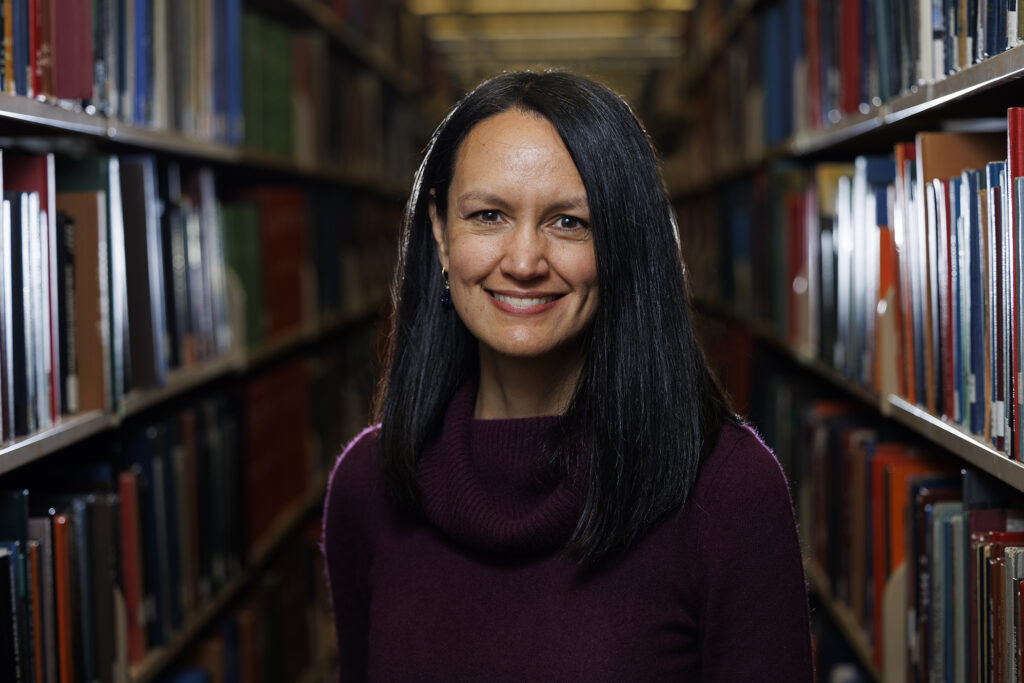
Julie Stanton
Associate Professor
Department of Cellular Biology
Franklin College of Arts and Sciences
Julie Stanton learned so much from her own outstanding teachers, but perhaps the most important lesson was to be herself in the classroom.
Stanton helps her students become better learners by fostering their love of learning. Her focus is on biology education research. She looks at how students plan, monitor and evaluate their approaches to learning, as well as how they develop these metacognitive skills during college.
In addition, Stanton uses evidence-based approaches for instruction. For example, she integrates small-group work in her courses because it improves students’ learning, performance and collaboration skills while providing students with opportunities to build their knowledge and share their reasoning.
“An important aspect of Dr. Stanton’s interactions with students is how much she believes in and pushes them,” one former student wrote.
Stanton is a member of the UGA Teaching Academy and has received the Russell Award for Excellence in Undergraduate Teaching. She has been selected as a Lilly Teaching Fellow and Center for Teaching and Learning Writing Fellow and earned a National Science Foundation CAREER Award and the Sandy Beaver Excellence in Teaching Award from Franklin College.
She has authored or co-authored numerous publications. Additionally, she’s received several research grants, including funds from the National Science Foundation.
“One of Julie’s most remarkable qualities is her dedication to refining the art of teaching and fostering positive interactions with her students,” one colleague wrote.


